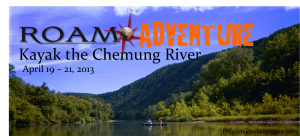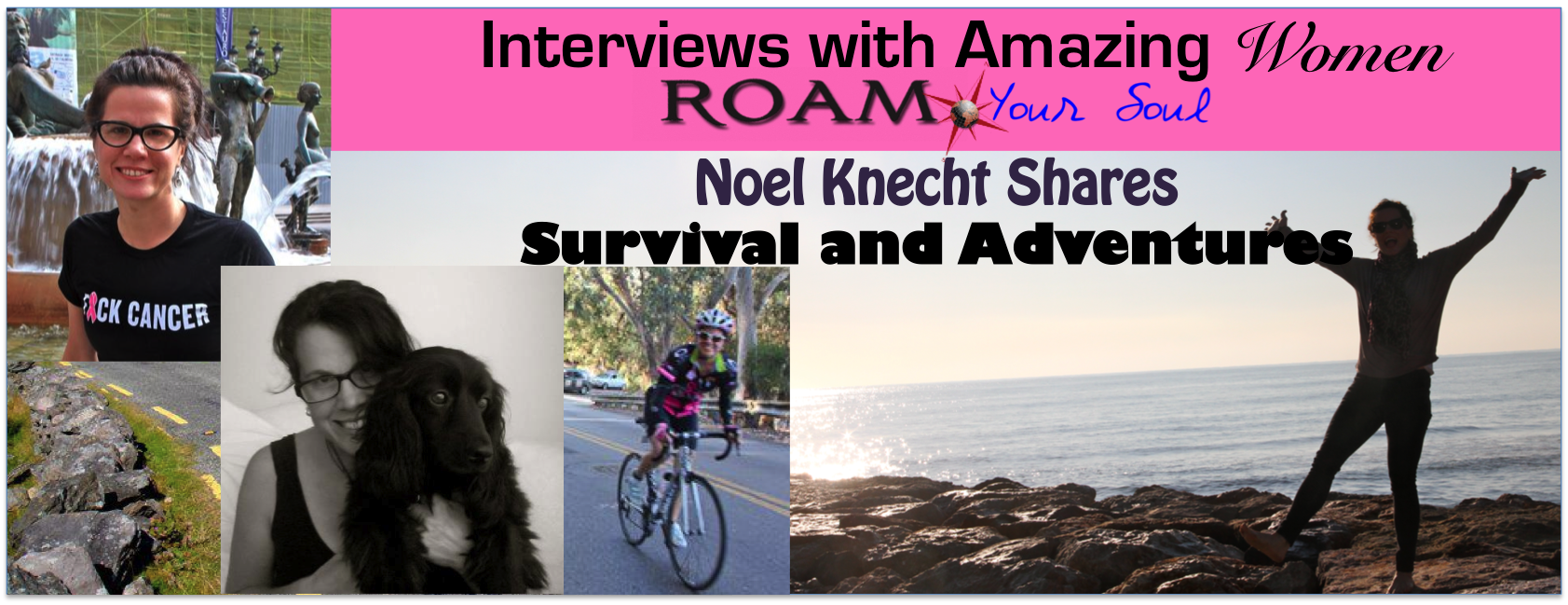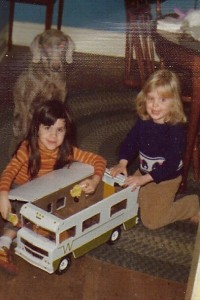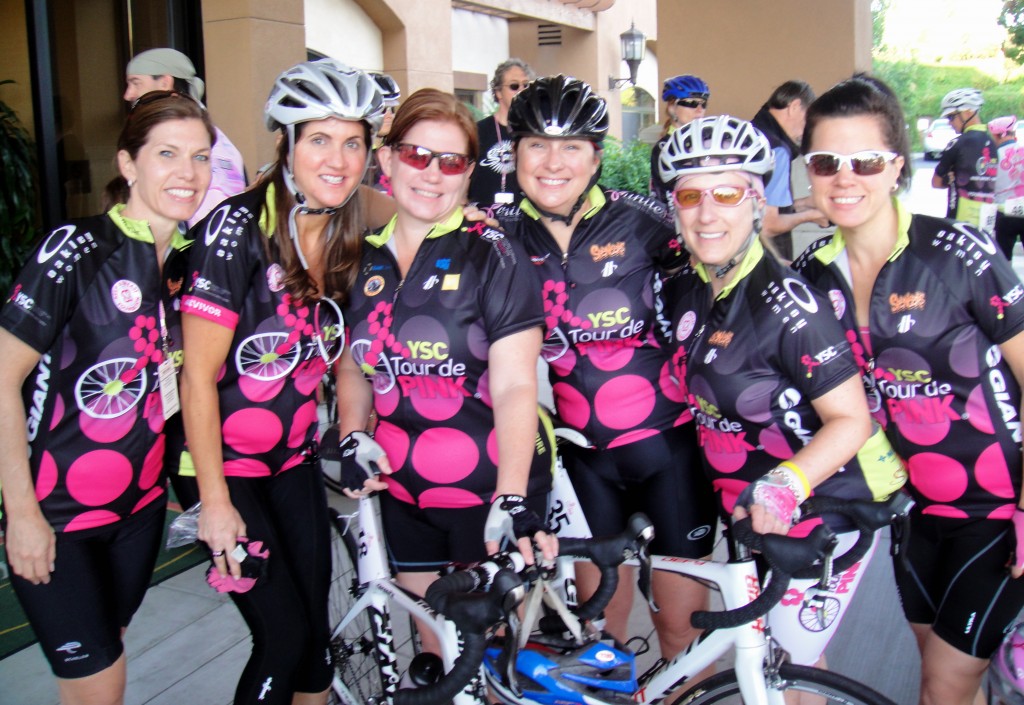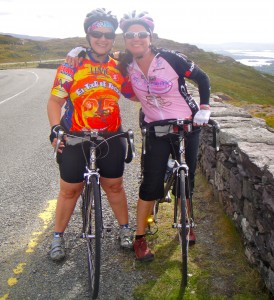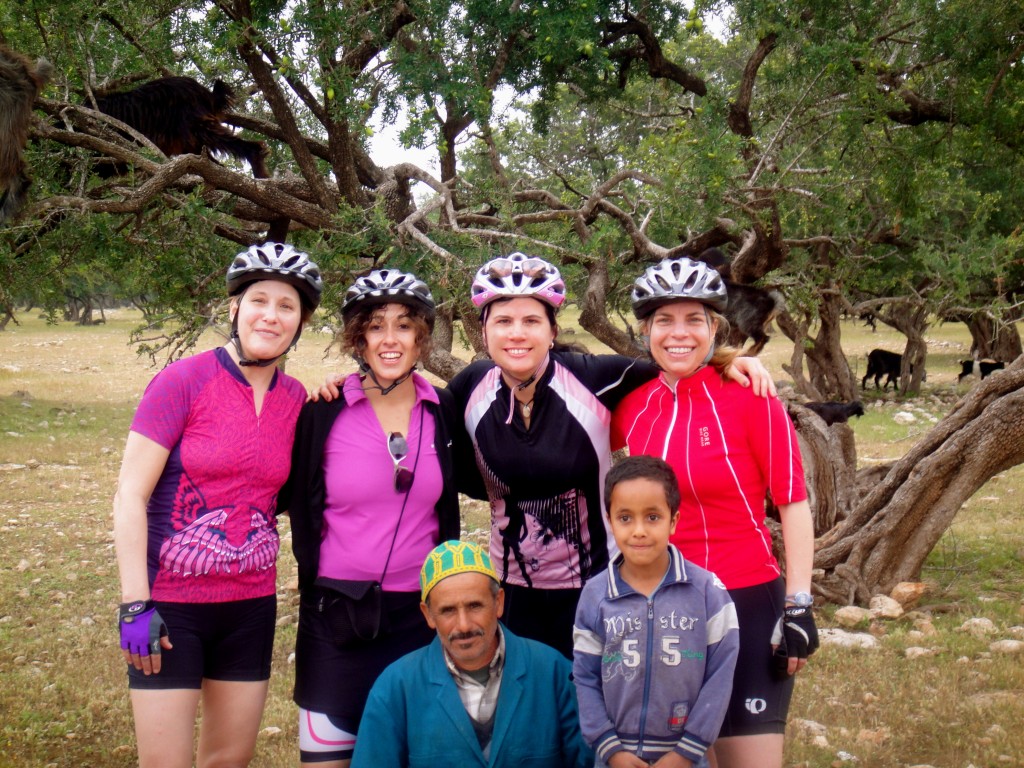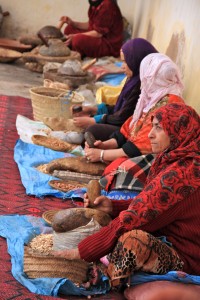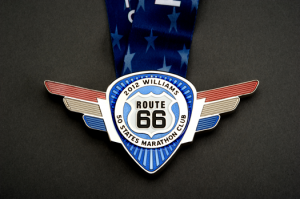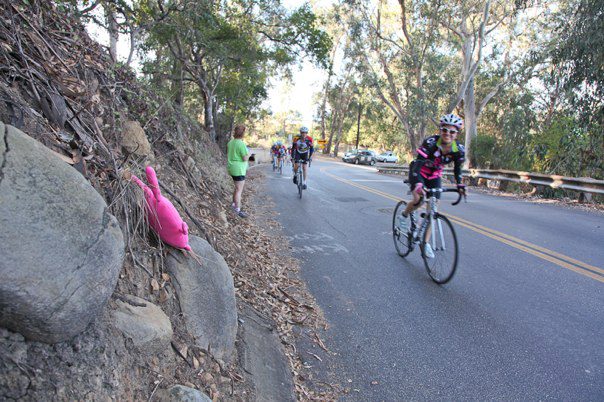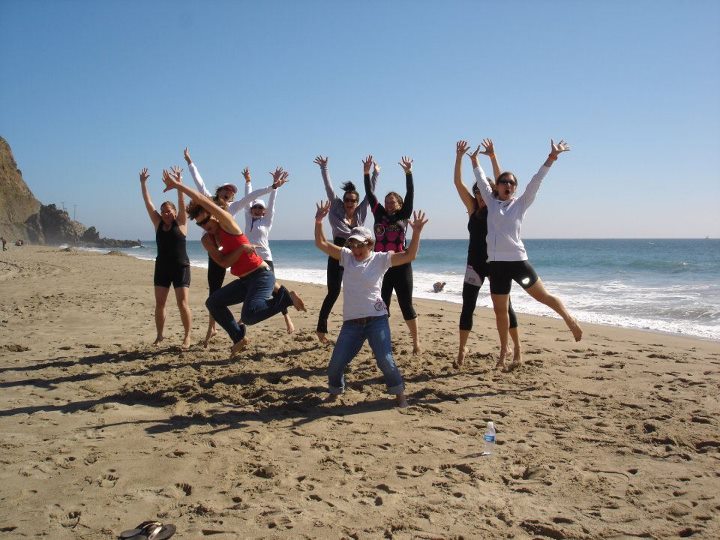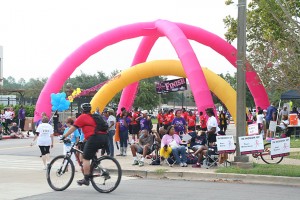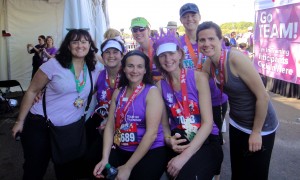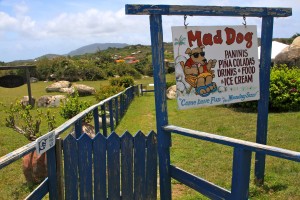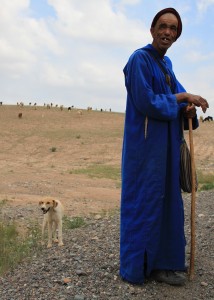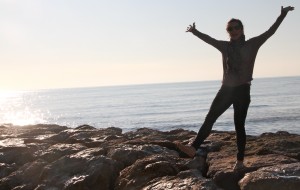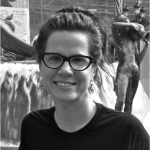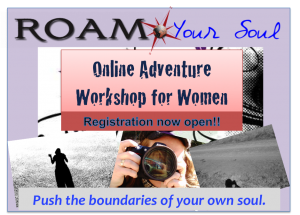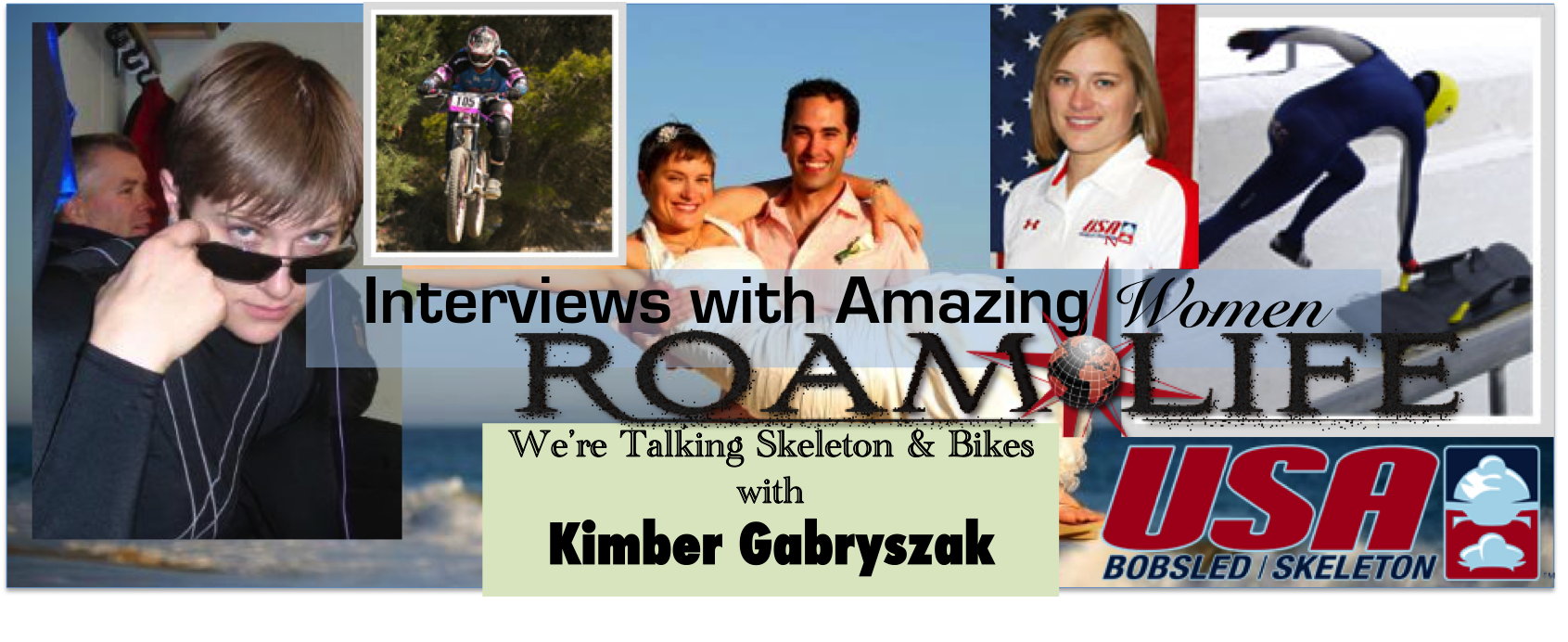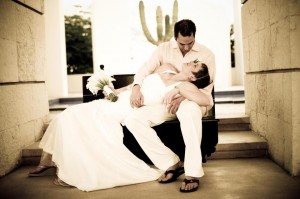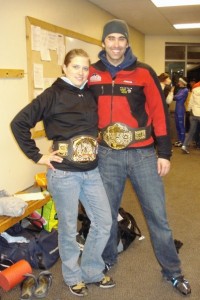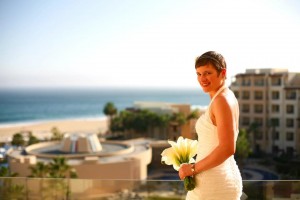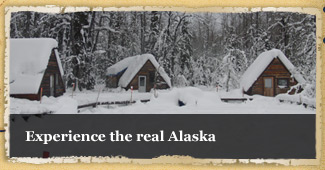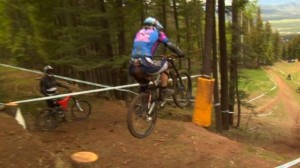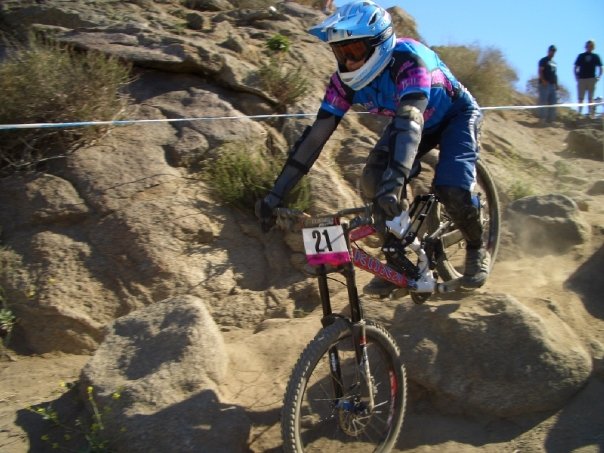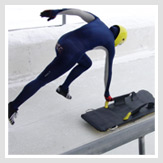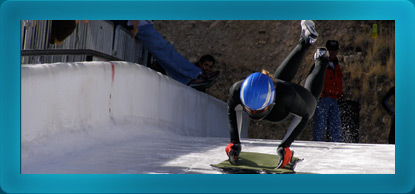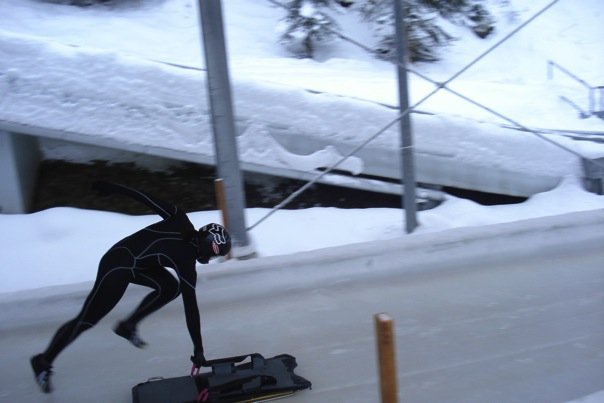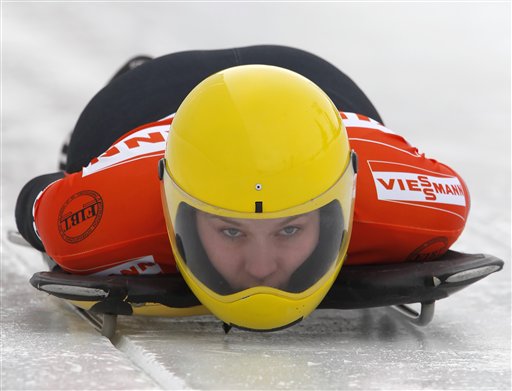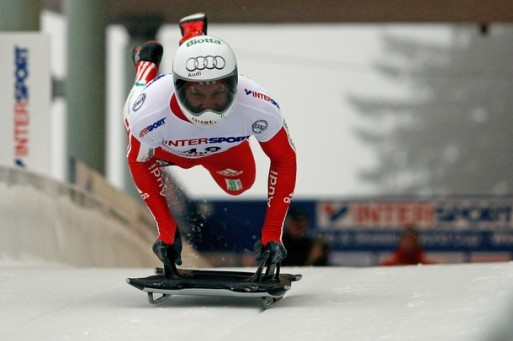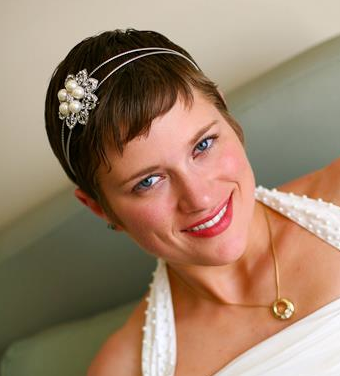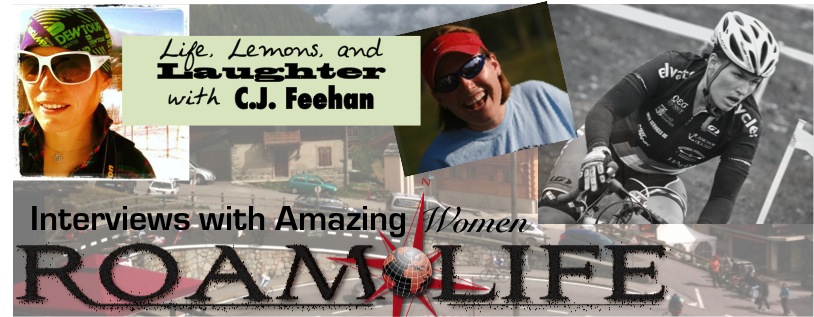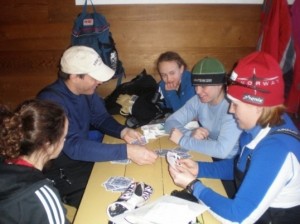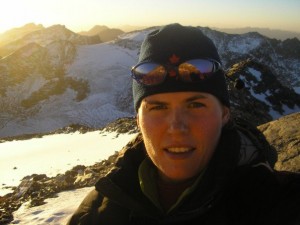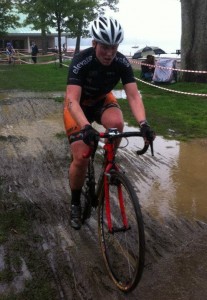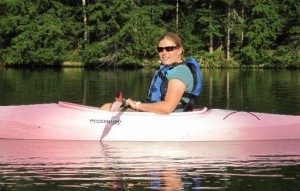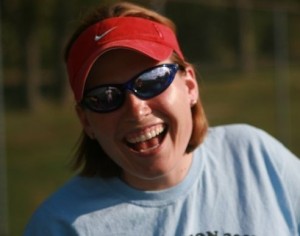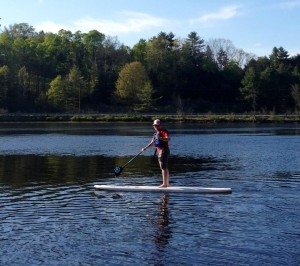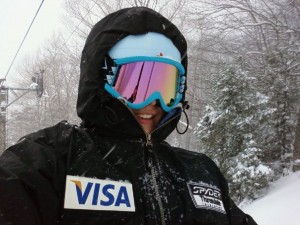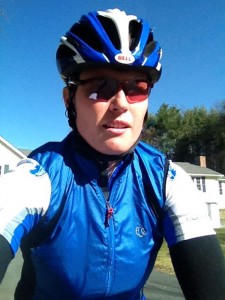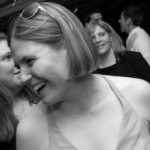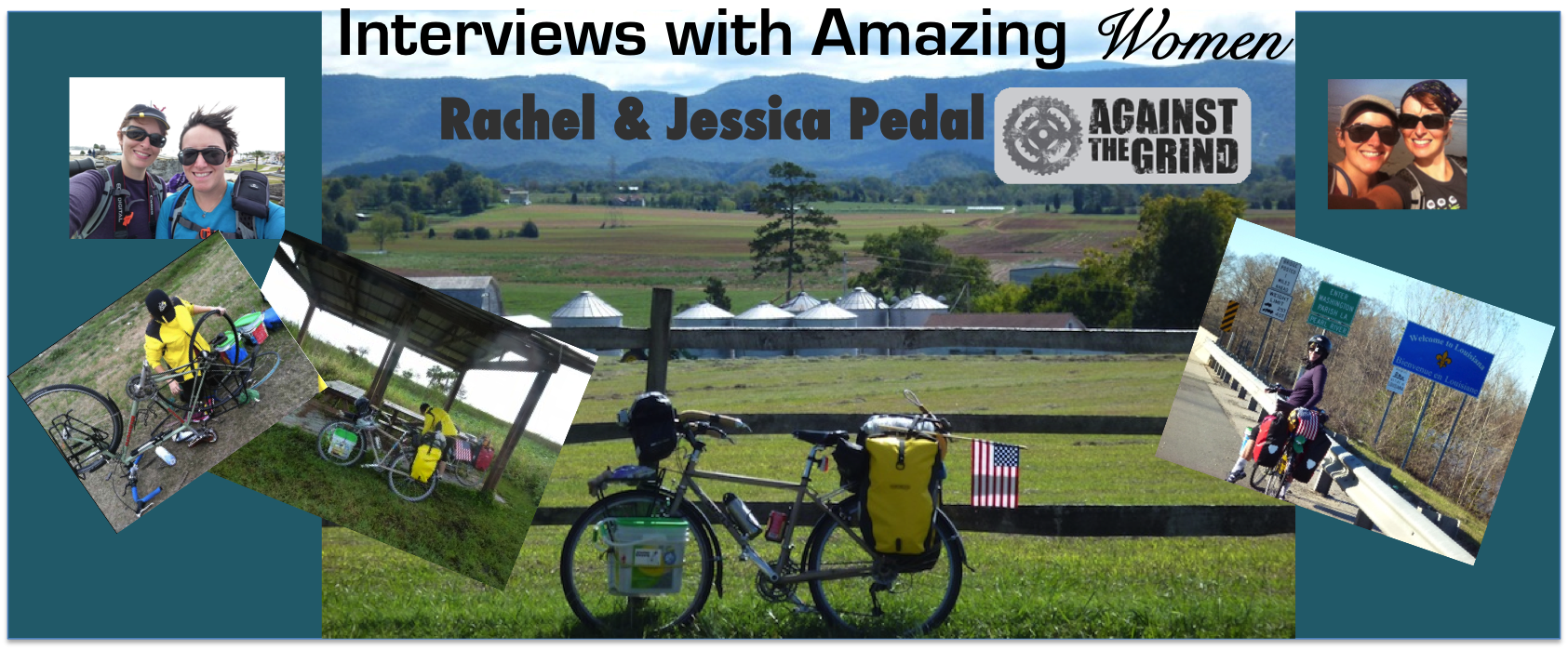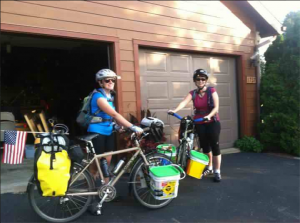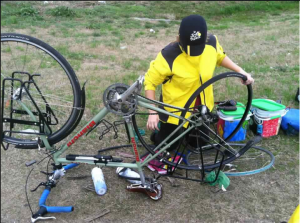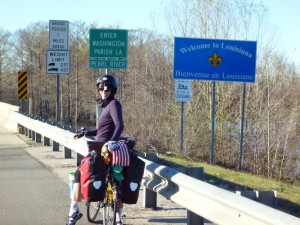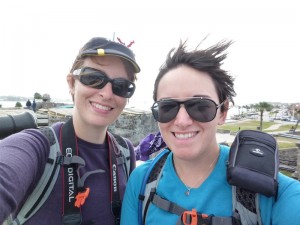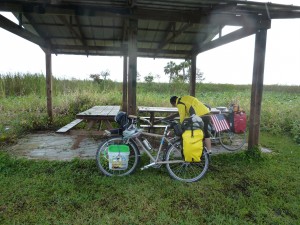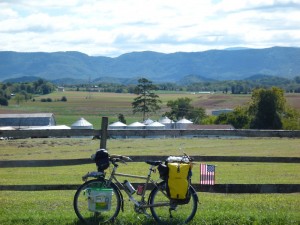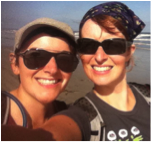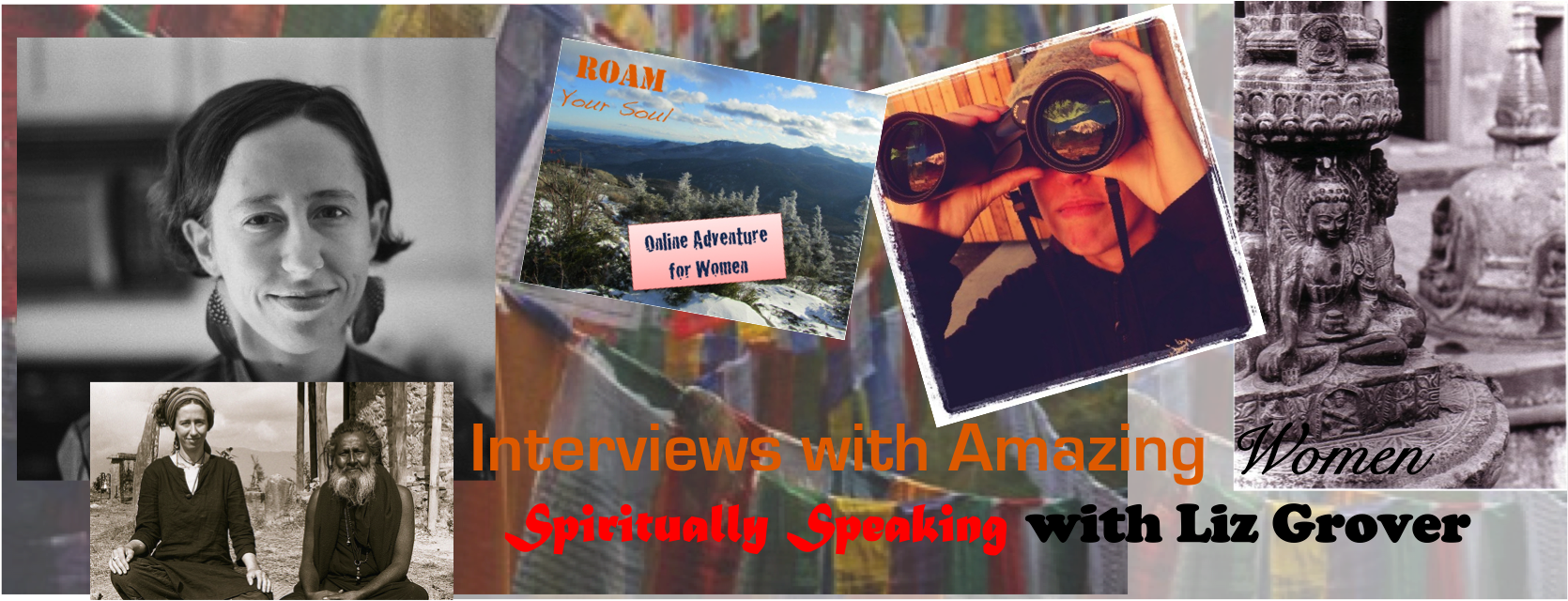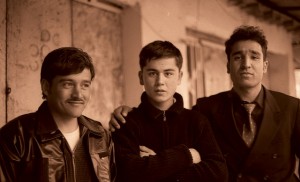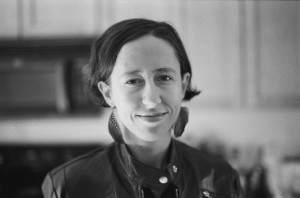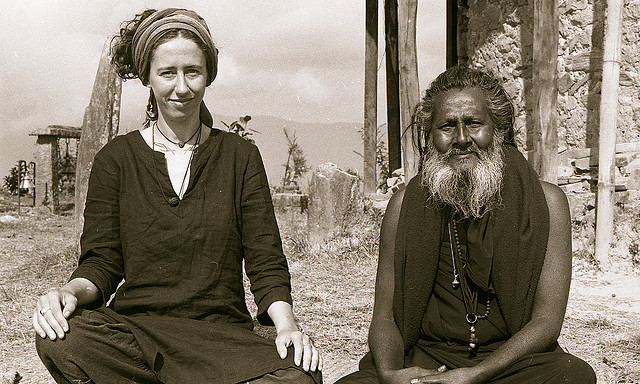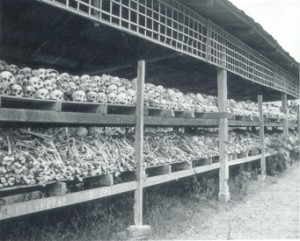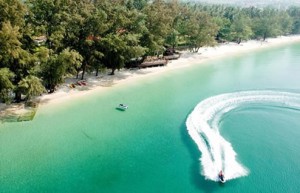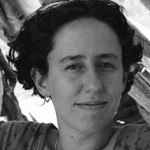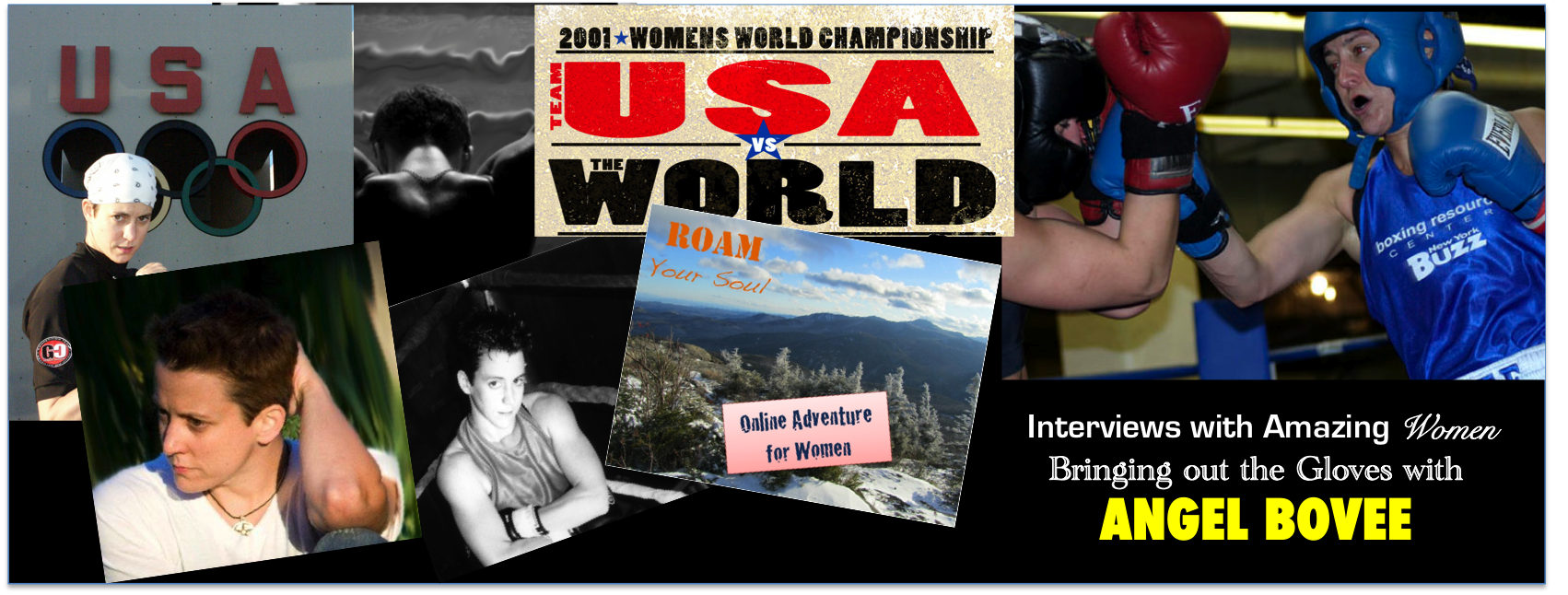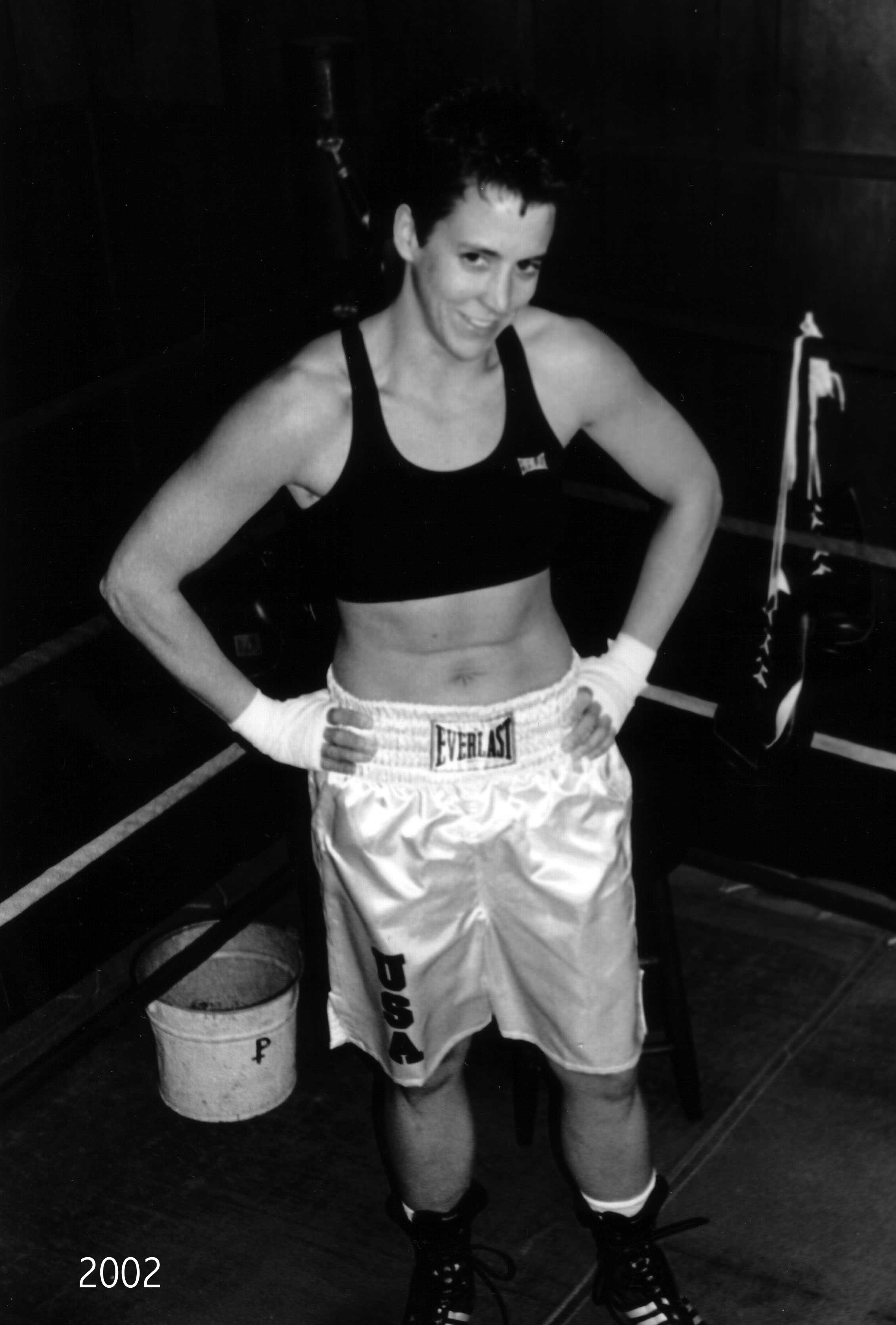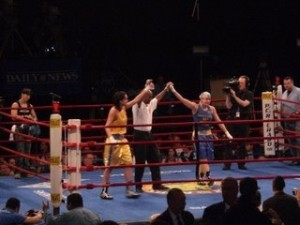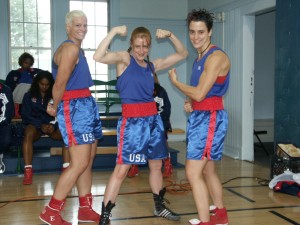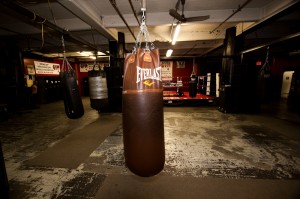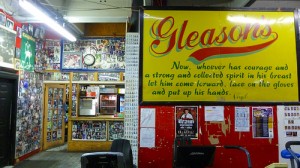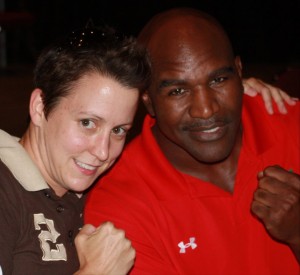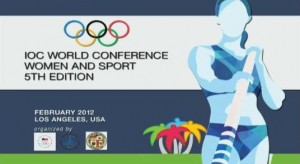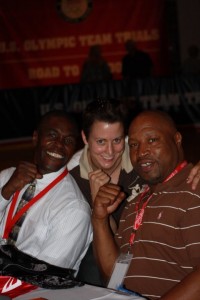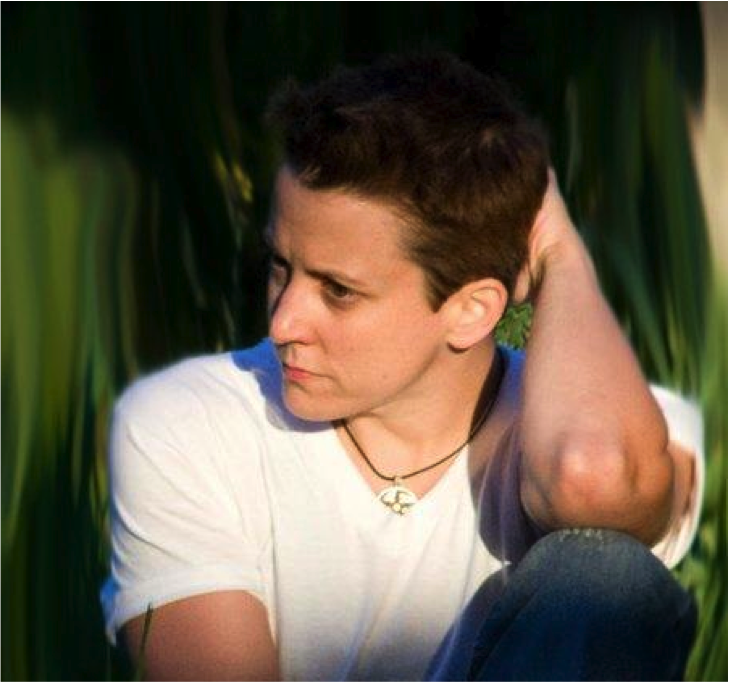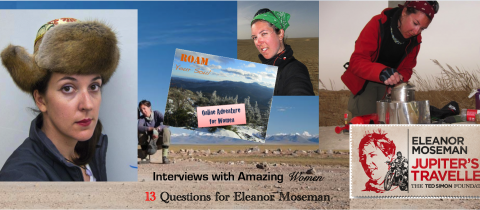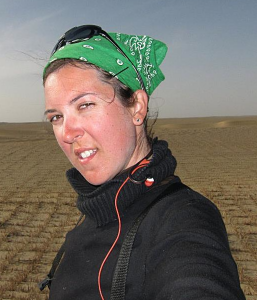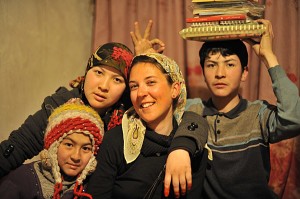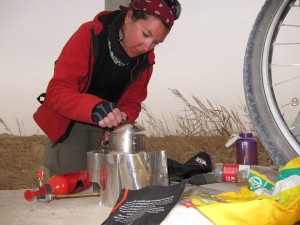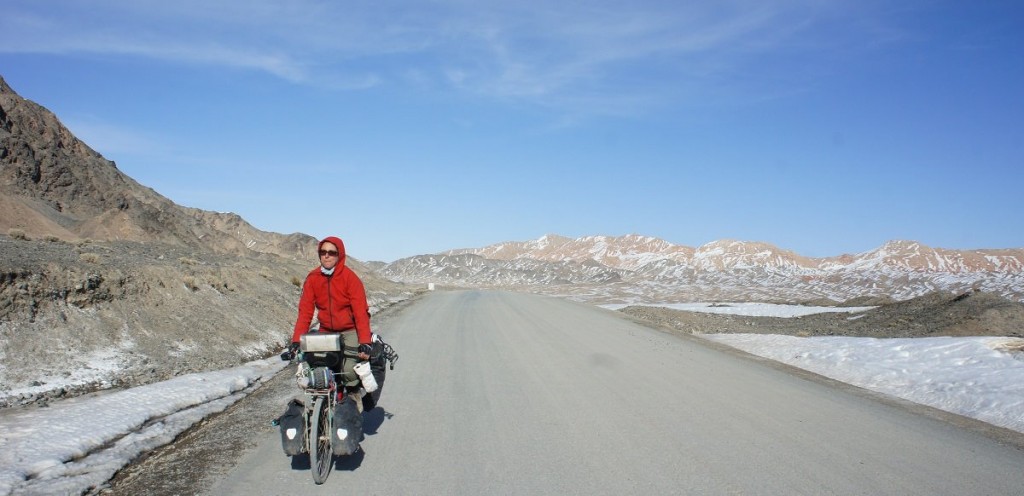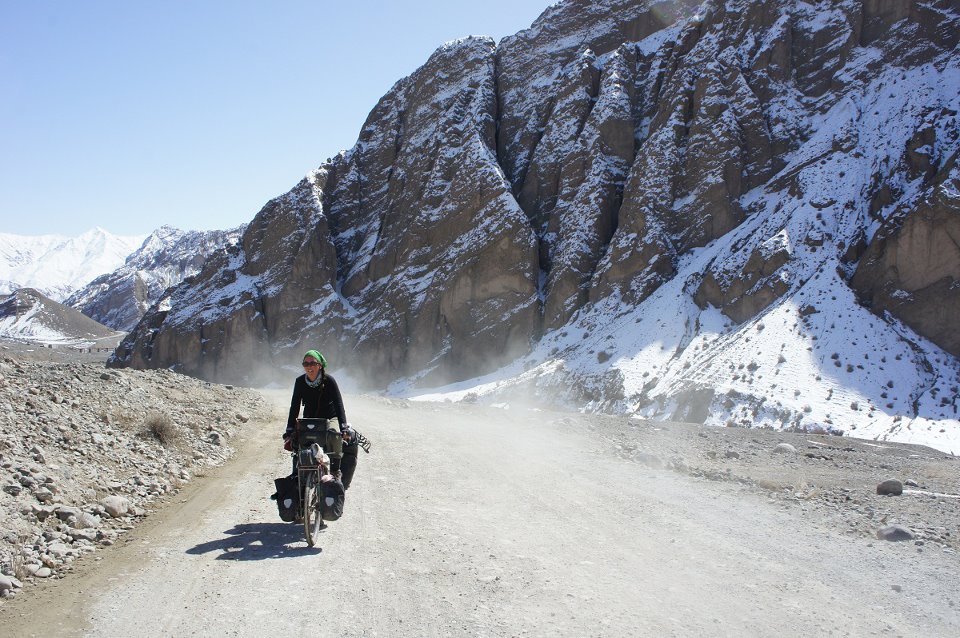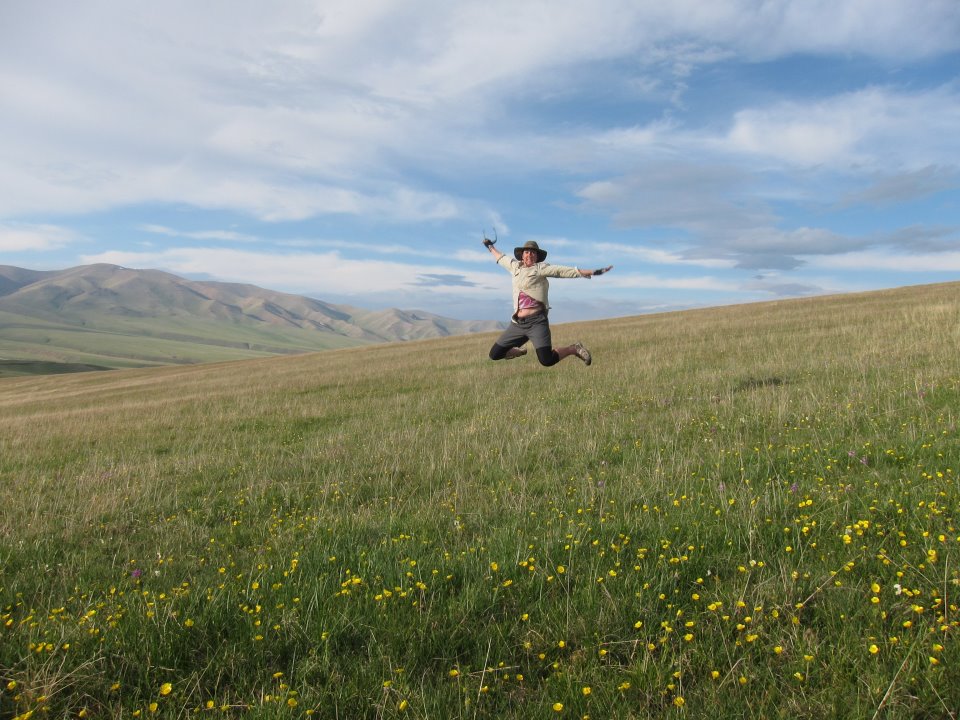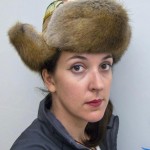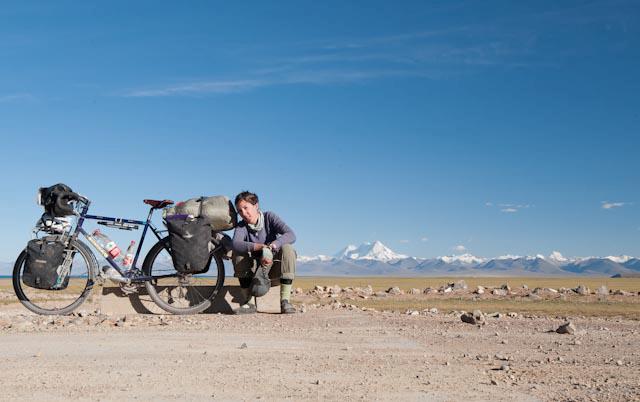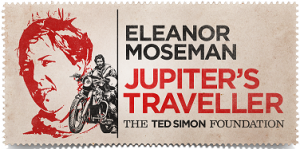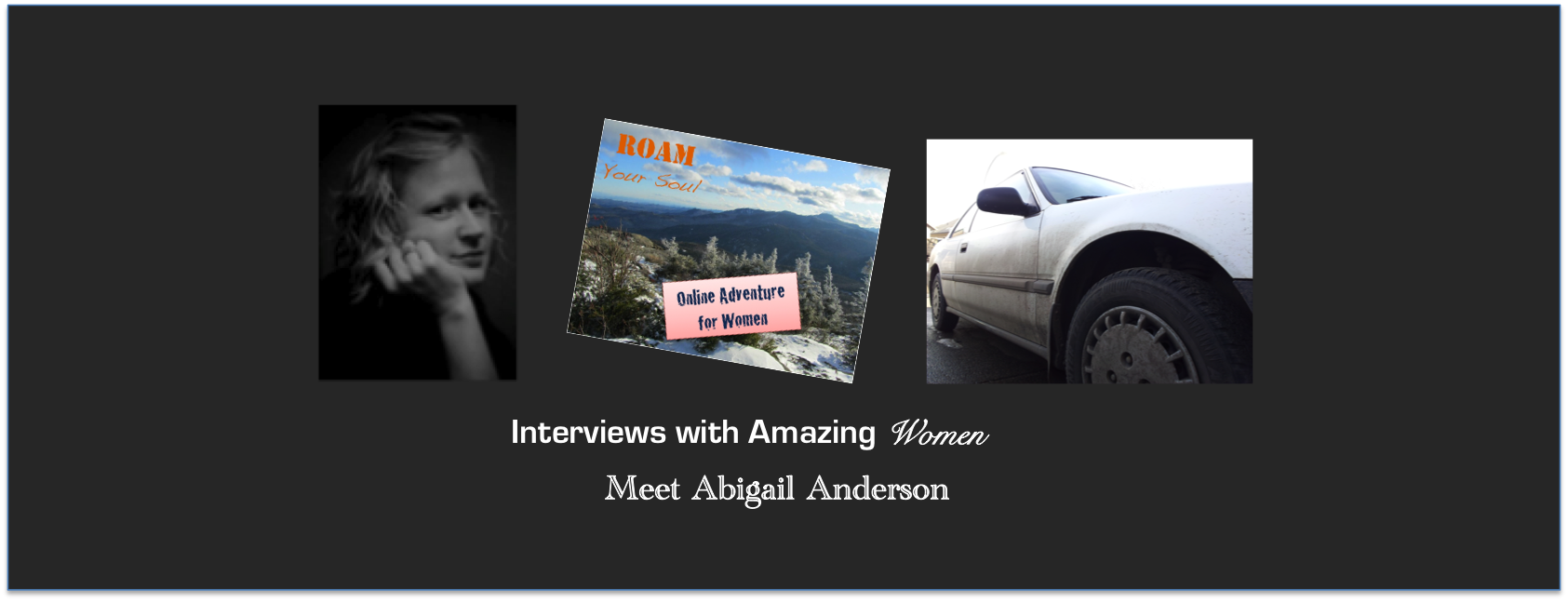by Christine Perigen | March 20, 2013
Isabel Suppé is no dweller. She doesn’t dwell on the negative. She doesn’t dwell on the past. And she sure doesn’t dwell in one place too long. Optimistic, reflective, and full of hilarious stories, it’s no wonder Isabel has picked up motivational speaking. She can turn the most terrifying, difficult, and impossible situations into a comical and refreshing opportunity. If you don’t feel like getting off your ass and doing something amazing after hearing even one of Isabel’s “Oh, this is my average day” stories, I don’t know what else will.
While climbing in July 2010, Isabel fell 1,100 feet off Ala Izquierda del Condoriri´s southeast face in the Bolivian Andes. After spending the next two days crawling over the ice with a severely exposed fracture at 16,000 feet above sea level, Isabel was finally rescued. Soon after, she was told that she would never climb again. Three weeks later, she was climbing up a rock wall in a cast.
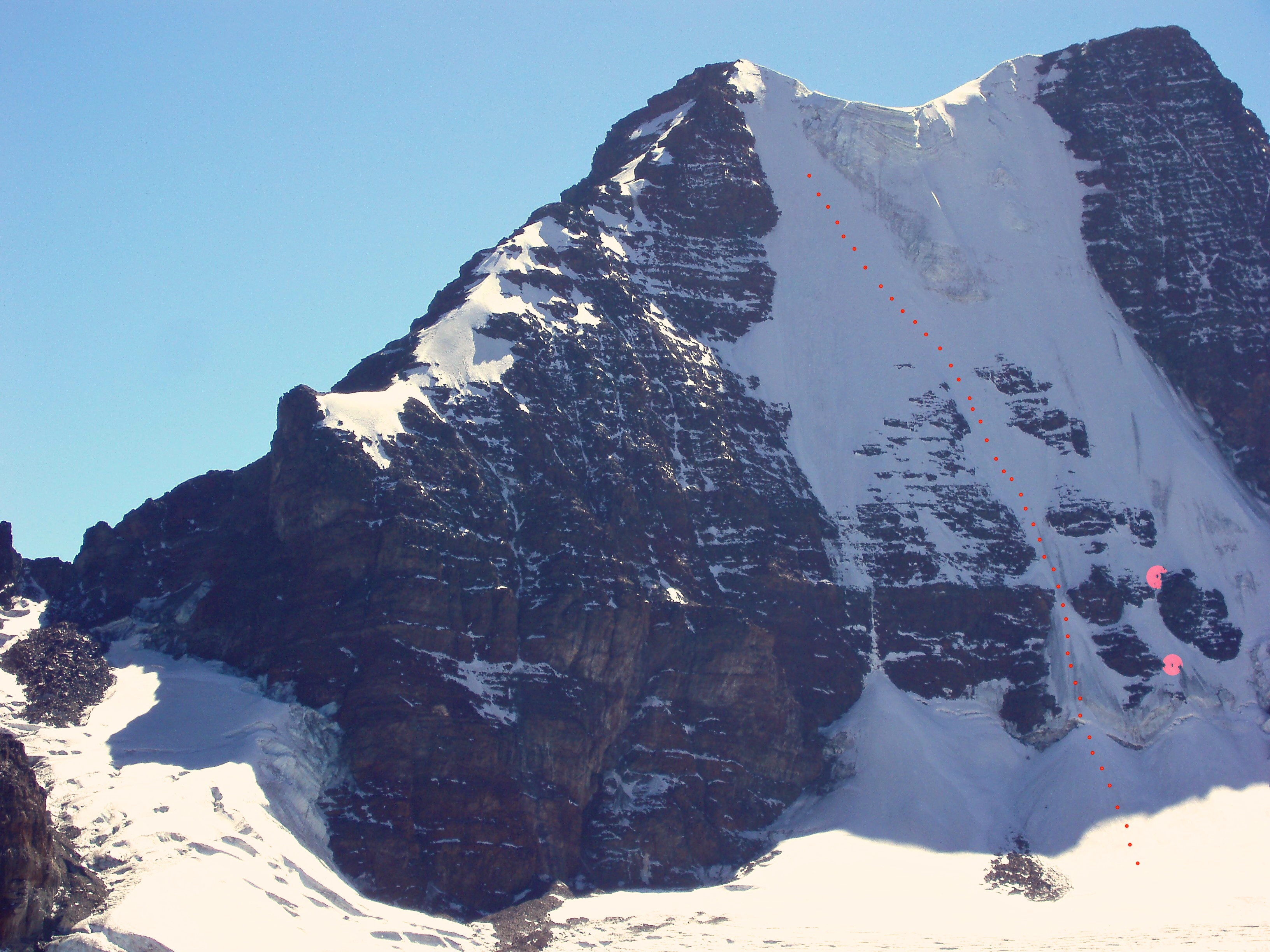
Isabel, when I first read your story, I thought, “Holy shit.” I was blown away by how resilient you are.
The fall while climbing was actually the easy part. Everyone hears the story and thinks, “Wow, so brave.” And, of course, I was really lucky because I could have just broken my neck and been done. I have to say, if you take such a fall and are lying on a glacier and you only have two options: either die or fight for your life, of course you do what you can to fight for your life. It starts getting hard when you are lying in a comfortable hospital bed. If you lay back and say, “Well, I’m not going to go to the gym because it’s hard to get there and I have to hold crutches and everyone stares at me;” that’s when it starts getting harder.
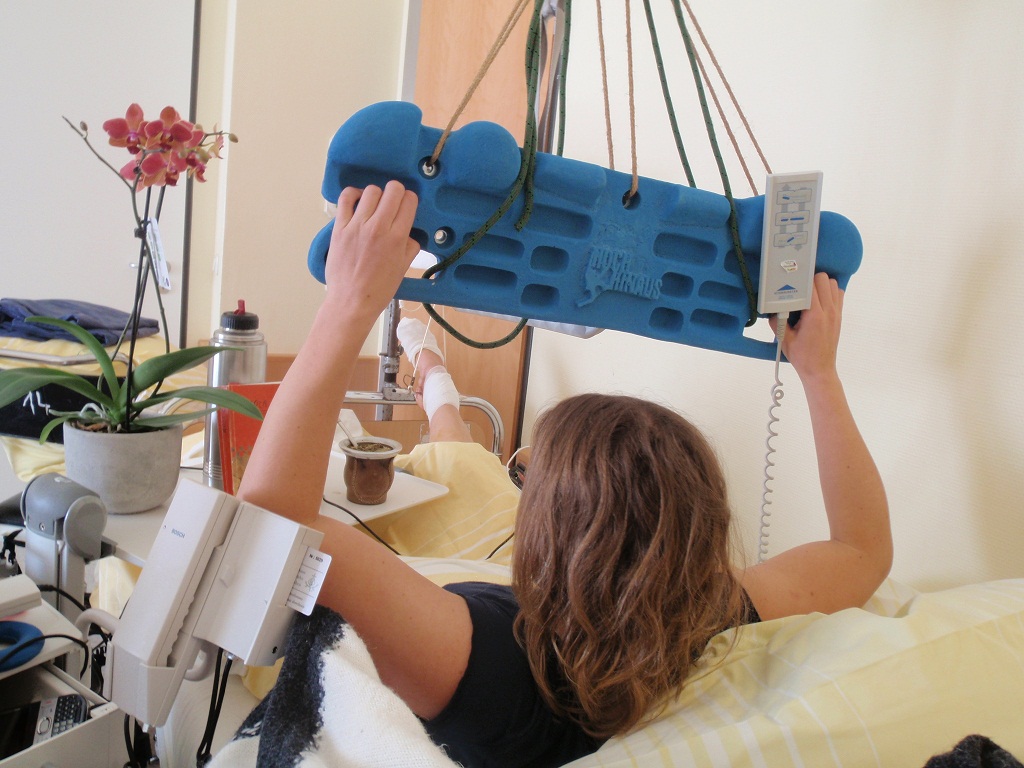
Why go back to climbing so quickly and against doctor’s orders?
In a way it was my anchor to life and to sanity. It was also a way of making the universe more graspable and understandable. I took such a fall and then was rescued and everything had suddenly changed. I was always used to having a tremendously healthy and well-trained body. To not be able to walk all of a sudden is a very severe change. If you can at least keep on doing things that are really important to you, for instance climbing, it helps you not to lose your mind.
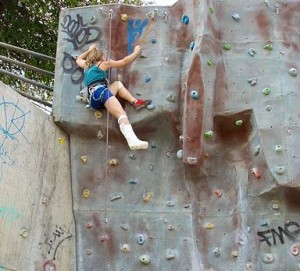
How did you motivate yourself to begin again?
It wasn’t a choice. I have always felt that climbing is my identity. If I stopped climbing then I wouldn’t be myself anymore. If you lose your identity, then it’s almost as if you have died.
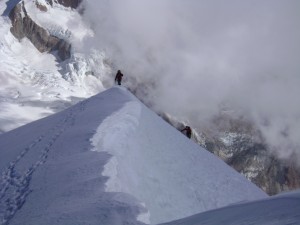
Your climbing partner’s injuries resulted in death. Just saying that is difficult.
There has always been a sense that the best tribute to a friend who didn’t make it off the mountain is to keep on climbing. I don’t want to dwell on his death. In the past, I lost a friend who took a 2,000-foot fall. That was very horrible and it was the first time I had any contact with anything serious happening on a mountain. I was very devastated. I started to get better when I went back to the mountain. I knew that I needed to do that this time, too. I had to spend several days and nights fighting for my life and I also had to deal with serious physical injury myself. Having to fight so much for your life, somehow you also start dealing with the other person’s death. Even today, it still does not seem real.
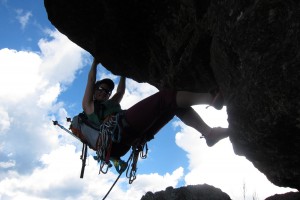
Back on rock, did you feel that you were risking it all to climb?
There is a story my first grade teacher told us. Two little worms were living under the earth and they knew that if they went outside to enjoy the sunshine it would be dangerous. One went and enjoyed the sun and got eaten by a bird and the other stayed underground. I always thought it would be better to go out and enjoy the sunshine than die underground.
Where does this spunk come from?
Spunk? What is spunk? I do not know this word. [insert short explanation]. Oh, I was just born that way. My grandfather taught me to climb but he was a different type of adventurer. My grandfather had two passionate loves. One was mountains and the other was my grandmother. When Germany was defeated, he was stationed near the Black Sea, near the front lines. He got the note that the German army was defeated. He thought, “Great! I can finally go home.” He left immediately and walked all the way from the Black Sea back to Germany [approximately 1,500 kilometres]. That was in 1945. No Gortex, no high end gear. He had to be careful so he was not caught. He had no food and had to hide in the woods so he would not become a Prisoner of War. I asked him, “How did you survive?” His response was, “Well, I wanted to see my rocks again!”
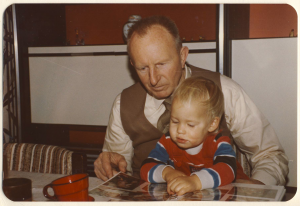
Over the years, he kept on climbing and was diagnosed with Parkinsons Disease. They gave him one year of life. He kept on climbing and stayed alive for more than 25 years. The day he couldn’t put on his harness anymore is when he shut down and just died.
I say the germ for climbing I got from him and grandmother but really my life changed after I moved to Argentina. I had never even conceived it would be possible to go to the mountains without my grandparents. Living in Buenos Aires, I had extra vacation time and I had been saving money to buy a fridge. I didn’t have one in my apartment. Fall was coming so I decided I could just put my food on my balcony and use my money to go on a trip. So I bought a flight to Patagonia. I didn’t even have proper gear.
I went trekking around El Chaltén. It was fall so I was the only person around. It was snowing and really cold. I had on corduroy pants and had nothing that would be used for mountaineering but I thought, “Hey, this is what I want to do.” And I just kept doing it. And this is how it all started.
Your grandfather, Walter Lenk, was famous in East Germany’s climbing world.
He was a locally famous climber. He definitely was not world-renowned. I was six years old when my grandparents took me rock climbing for the first time. I was going on easy treks ever since I was born. My parents and grandparents took me on picnics before I could walk. They took me to rocks in Southern Germany and then after the Berlin wall fell they took me to Eastern Germany. My grandparents are from Eastern Germany but they fled when the Russians built the Berlin Wall. When I was 11, they took me back there.
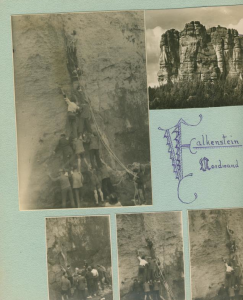
When I was 19, I graduated from high school in Germany and moved to New Jersey on a scholarship for my undergraduate studies and finished in two and a half years. When I was about to finish, Bush was elected president and I said, “Okay, that’s it! I am leaving this country!” I wanted to see more of the world. I had taught myself Spanish so I thought, “Where shall I go for graduate studies?” I had been to Spain so I wanted to see something else. I saw the name Argentina and all I knew was that the capital was named Buenos Aires, it was in South America and there were some writers I liked from there. That’s how I got to Buenos Aires. I started to do longer expeditions after I moved to Argentina.
Living in Buenos Aires, you are surrounded by millions of people and are not close to mountains. Are you a city person at heart?
Living in Mahwah, New Jersey, I was going into the city every Saturday and to the art museums all the time but the problem was there were no mountains. Mountains are perfect if you are only into outdoors stuff. The city is perfect if you are only into culture and having a cultural life. But if you need to have some of both worlds then your life is complicated. I was about to sign up to do a PhD in Argentina and in the end I wrote the research project and everything. To be honest, my life is not supposed to be trapped in the library. I need to learn and have contact to cultured people but I need the mountains. I knew I wouldn’t dedicate myself to research the way I would need to. I moved to Mendoza and survived by translating menus for restaurants and doing mountain guiding. Living in Mendoza, I always missed something. It was contact to culture and to people who can talk about artists like Van Gogh. I still haven’t found the perfect place but I do miss Argentina a lot.
Where do you consider home?
Nowadays, since I have had to be away from Argentina because of medical conditions, I have been traveling and living in my tent. Right now, I am visiting my dad in Munich (he doesn’t make me stay in a tent here!) but my permanent address is my tent.
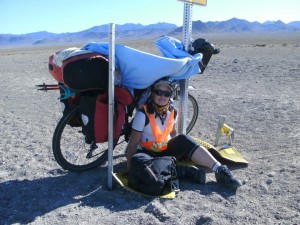
When doctors told you that you would never climb again, did you think, “Heck yes, I will!”
I actually did not believe it for one second. I just couldn’t. When I was on the glacier, it took me more than 12 hours to realize I was losing a lot of blood. I kept thinking it looked like a lot but it couldn’t be that bad because I would be dead by now. I had to be careful and wanted to avoid frostbite so I didn’t take my shoe off. I accepted the loss of blood. I needed my foot. I didn’t get frostbite at all. Nowadays, I know even if I had lost my foot, I would still go climbing. I don’t know how the surgeries are going to turn out but I know that if I can’t climb the way I want, then amputating might be an option because it is true that sometimes you can be better off amputating a limb and using a prosthetic than keeping a limb. I have a friend who had to make this decision. He said, “Well, better to be an amputee than a cripple,” and chopped off his foot. He goes rock climbing and ice climbing. I am not saying that’s an easy decision. I’d much rather not have to make that decision but I know should I have to, I will take it.
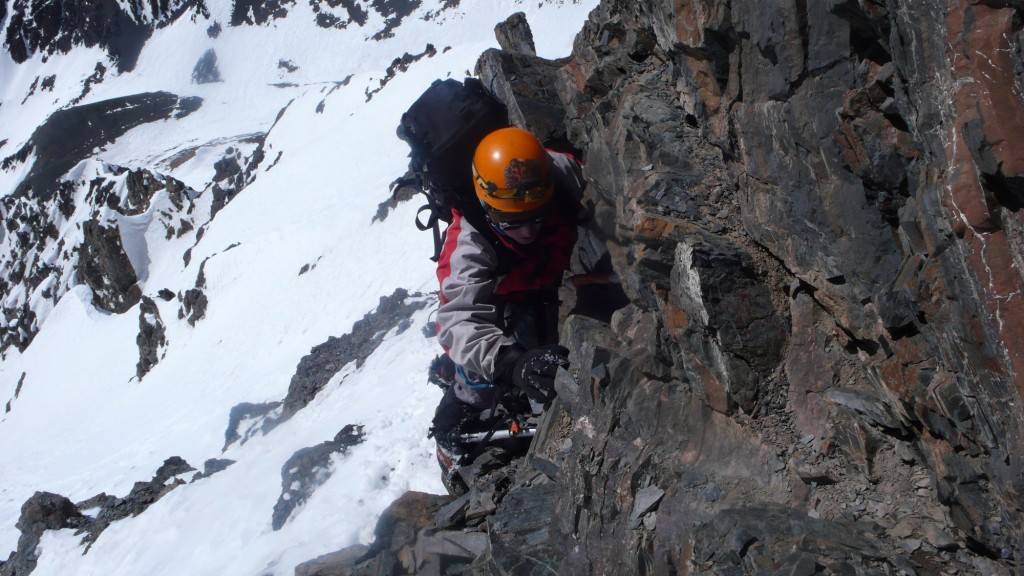
How many surgeries have you had since your fall in 2010?
After the accident, I spent six months unable to walk. Then I learned how to walk. Then they had to operate again. That was a one-month recovery. Then I walked again. After that, I had three more surgeries in Spain. January 25th was surgery fourteen. This surgery will have a three month recovery and then I have to learn how to walk again. That also takes time.
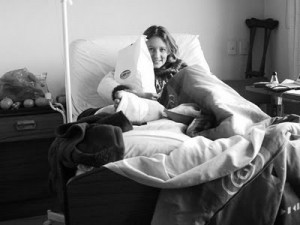
As the first woman to solo climb Nevado the Cachi, you became one of the “firsts.” Is this important to you as a woman?
Actually, no. It was important to me not because I was the first woman. Not because it was solo. That climb wasn’t technically difficult. It was just high and isolated. Climbing Nevado the Cachi was important to me because I was standing up there on my two feet and on my crutches after the doctor told me I wasn’t going to be able to go back to the mountain, especially at high altitude. That was the important thing. If you look at the important climbs, this was a very easy mountain. It’s true that it is very isolated so if anything happens, forget about it. No one will find you for a long time after you are dead. It takes several days of walking to return to civilization. The wind is very, very extreme and temperatures are extreme but it is not a vertical climb. I guess no woman has ever done it on her own because of fear or the loneliness. It requires a lot of exposure.
One of your best known climbs is the new route you created on your birthday, after the accident.
I felt that it was much more important to open the new route in Bolivia with Robert on the anniversary of the accident. It was included in the American Alpine Journal as one of the world’s greatest climbs. That was one of my greatest accomplishments. After a year of hospital and rehab, I hadn’t meant to do anything that difficult. I wanted to do something but not the classic climbs because I had done almost all of them and they are too crowded. He said, “Oh yea! I know what we can do. I have not been to this climb. Let’s go there!” He is a really crazy guy. He knew what I was getting into. He had climbed on crutches before, too. I am sure he thought, “She climbs on crutches. I like that, so I will take her.” What I liked about him is that he is the only one mad enough to trust a climbing partner on crutches.
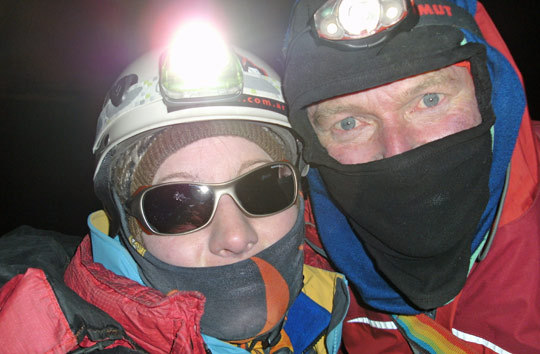
Do you see yourself as a “female climber” or a climber?
Just as a climber. I don’t think it’s necessary to separate that out. If you really want to change something or feel that more women should be represented, it’s better to set an example than it is to blame. In most athletic disciplines, women compete among women because, of course, there are biological differences. We have different bodies and there is nothing wrong with acknowledging that but for everything else – there are parts of the world where it is still important for women to fight for their rights but in the United States or Europe it is less the case. I’m, of course, against patriarchy, but I don’t want a matriarchy either.
When I was about to get into my PhD program, my director wanted me to get into gender studies and I said no way. It’s not my cup of tea. Cycling across the US, I thought about this a lot. It’s really true that it’s all linked – human rights. It’s not women’s rights. It’s human rights. Mental issues, gay rights, environmental issues – those things are linked because whenever there are rights that are abused, everyone suffers.
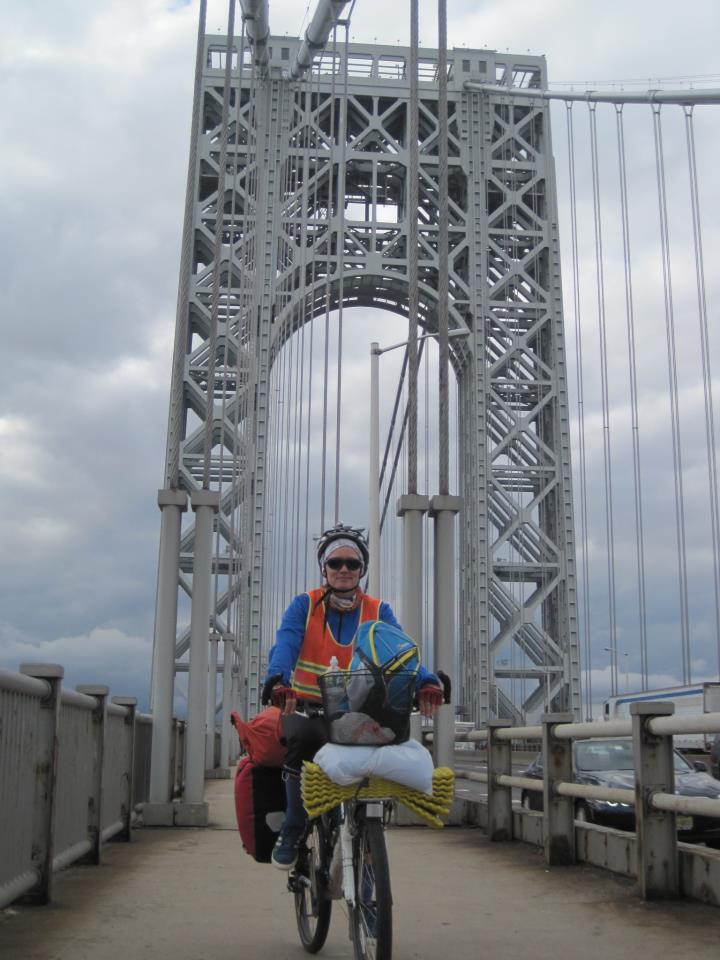
What do you have to say to those people who are just dreamin’ to quit it all and go?
Dream. Ask yourself what do you want and how do you go about making that dream come true? What is really important? Sometimes, if you take a close look, it’s not really all that important to worry about a broken dishwasher. Sometimes, if you look at it closely, you can live pretty well without a dishwasher. You can say, “Screw the dishwasher! I can hand wash my plate for a while or buy a new one but this weekend I want to have a good time.” You can go anywhere.
Tell us about Rocinante.
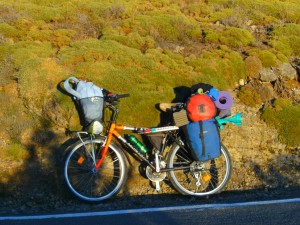
Rocinante is the name I gave my bicycle. [Rocinante was Don Quijote’s horse] It is actually my German grandmother´s old bicycle. I was at the German-Swiss border to Spain. I needed to get to Spain and thought the air flight was expensive. The doctor said I should cycle a lot to help in rehabilitating so I thought I could just cycle there. It is just tremendously depressing after you have been through so many surgeries to be told that you have a non-reversible condition and it can only get worse. So, you need to do something positive. I thought, “Hey, I am going to cycle there and try a new method of treatment.”
After Spain, I needed to get to an airport with a really cheap flight back to Germany. On my way, I found a sign that said ferry to Africa. I thought that was really cool and thought it would be great to cycle there. I called my brother and they had cheap flights to the southern tip of Spain. I asked my brother if he would like cycling through Morocco together. We started in Morocco and then cycled from Marrakesh to the Sahara Desert. After I finished that, we returned to Germany and I went to Spain to present my book and then left for the US and finally cycled across the US. On September 29, 2012, I finished.
What was it like riding across the US and coming across other cyclists?
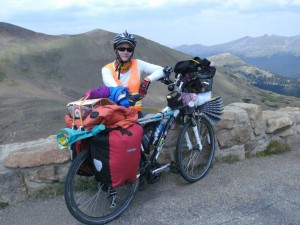
I really didn’t meet any cyclists. I met this one guy who had no weight on his bike and his wife was driving behind him handing him soft drinks and booking his hotels for him. I thought that was funny. I cycled across Nevada on a really lonely road. I went through Tonopah and took the Extraterrestrial (ET) Highway and ended up in St. George, Utah. Then, I did a presentation in Boulder, Colorado and went through Nebraska and traveled as far north as Niagara Falls and then headed towards New York City.
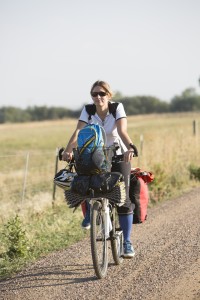
I was traveling and doing these presentations. In Nebraska, I found myself speaking to local farmers in a barn. I had to give the speech in my cycling outfit because my clothes had been shipped ahead and I was just passing through. I spent two hours answering questions. Along the way, I spent some nights camping in a ditch or a bathroom and other nights in a millionaire’s mansion. Everything is relative.
In Boulder, I had met a climbing partner and he said he would climb in Devil’s Lake but I would have to skip some of the Midwest because of climbing. I said, “Okay! Let’s go for climbing!” I crossed all of Michigan and Ontario and re-entered the US at Niagara Falls and then dropped into New York, Pennsylvania, and New Jersey. I finished the ride in front of Van Gogh’s, Starry Night at the MoMa. [Starry Night is the name of Isabel’s book about her climbing accident and recovery]
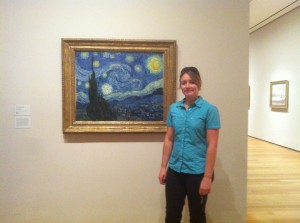
Why travel around the world? Why visit all of those places?
I haven’t traveled around the world. I’ve just traveled a lot. To me, it is about living the way you want to live. It’s sometimes good that more people are not like me because no one would work in the office or …well you wouldn’t be able to visit your friends anymore. They would all be traveling and you would have nowhere to stay! I love that I’m a nomad and I always know where to find my friends. It’s so hard to get left behind.
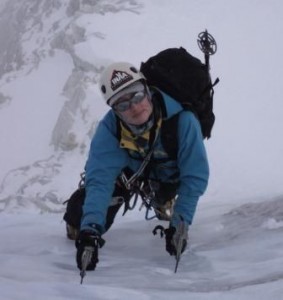
TP: Crumple or Fold?
I have never stopped to think about it. It seems too trivial! I bet I am not an orderly person. I bet I would crumple it.
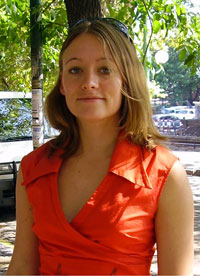 Isabel Suppé is a high-altitude climber, writer, and motivational speaker. Her book, Starry Night, is being released in English in April 2013. She is a true survivor and nomad who follows her love of climbing all over the world.
Isabel Suppé is a high-altitude climber, writer, and motivational speaker. Her book, Starry Night, is being released in English in April 2013. She is a true survivor and nomad who follows her love of climbing all over the world.
For more information on Isabel and her adventurous life, visit her website.
Isabel will begin her US TOUR in June, 2013. Stay tuned for notifications on events in your area.
To read the full story, order a copy of Isabel’s book, Starry Night. Click the Buy Now below.
Shipping Date: May 8, 2013

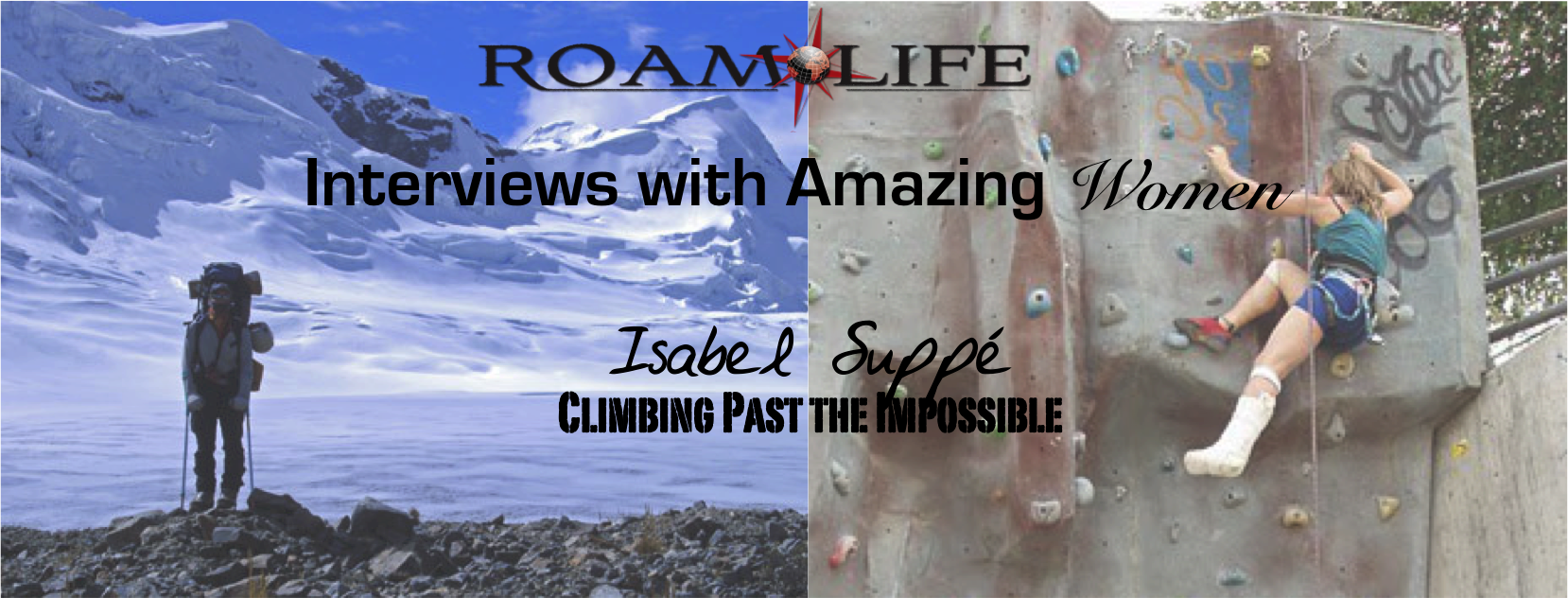
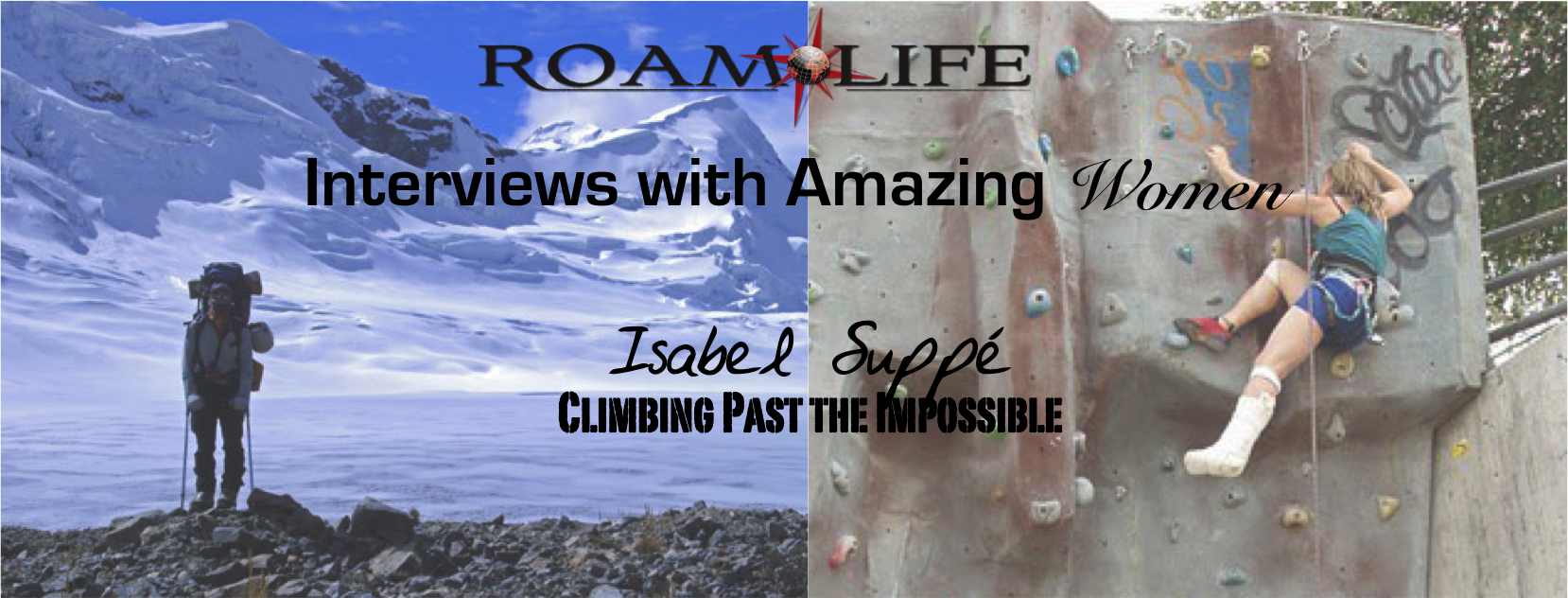
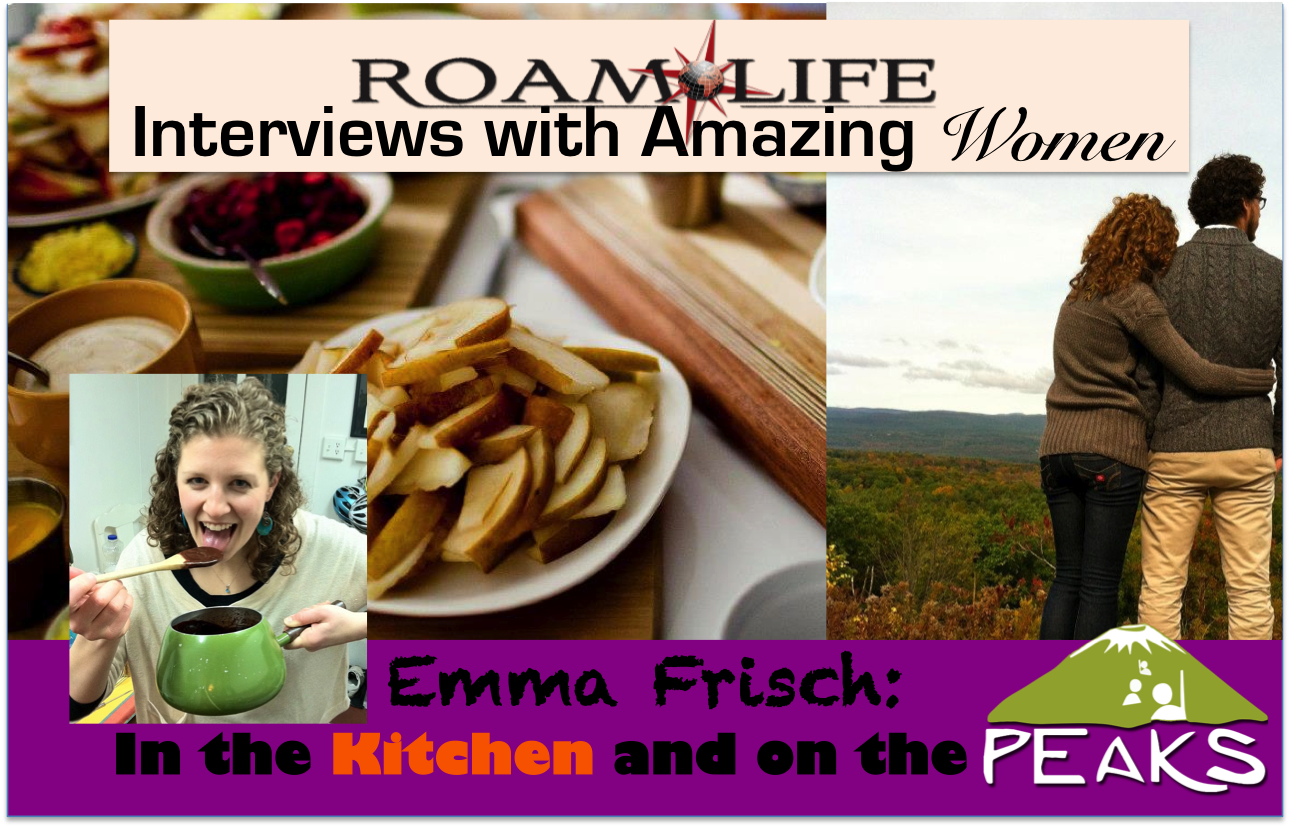
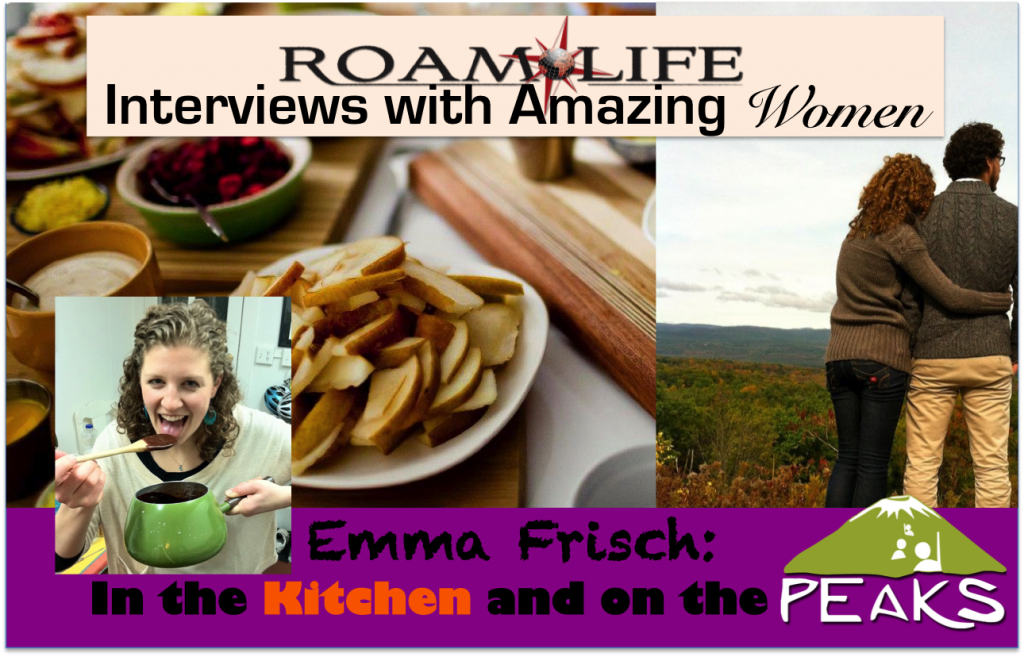
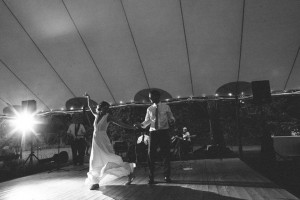
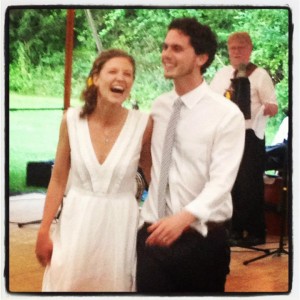
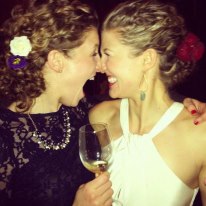
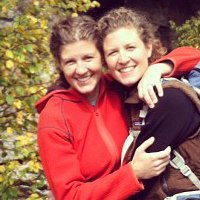
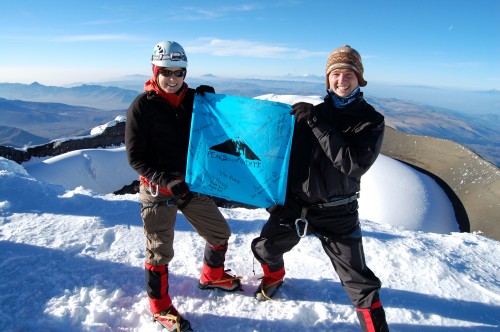
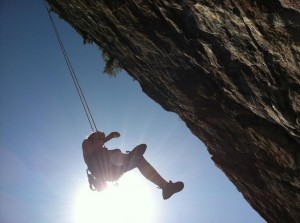
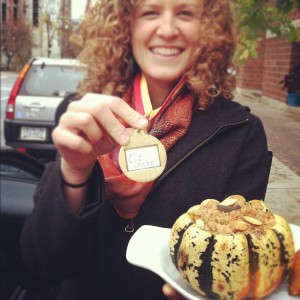
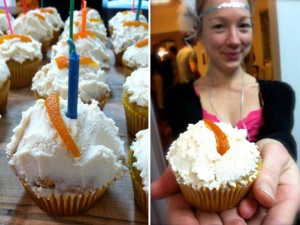
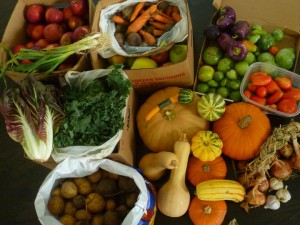
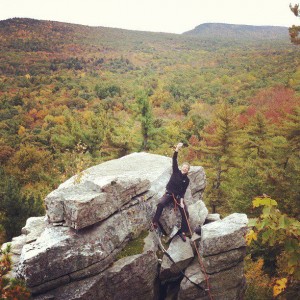
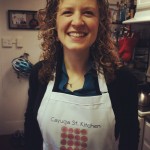 Emma Frisch is the Director and Co-Founder of PEAKS, an organization that provides the platform and audience for your fundraising campaigns. She also manages her food blog, Cayuga St. Kitchen and continually is experimenting with ingredients to make new dishes. She lives in Ithaca with her husband, Bobby.
Emma Frisch is the Director and Co-Founder of PEAKS, an organization that provides the platform and audience for your fundraising campaigns. She also manages her food blog, Cayuga St. Kitchen and continually is experimenting with ingredients to make new dishes. She lives in Ithaca with her husband, Bobby.